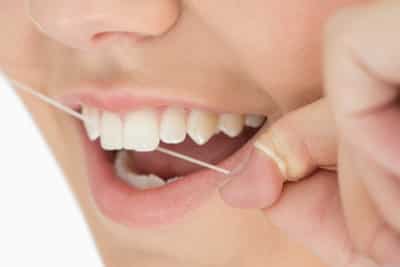
Each time you visit your team of hygienists, dentists and dental assistants for a check-up and clean, there’s one question you’re almost certain to hear: “Have you been flossing?” Unfortunately, for a lot of patients the answer isn’t always Yes. Most of us make a habit of brushing our teeth twice a day, as recommended by dental health professionals, but fewer people follow the recommendation to floss at least once a day.
So why is flossing so important?
What many people don’t realise is that flossing plays an important role in dental health. While a toothbrush is used to clean the tops and outer surfaces of the teeth and gums, floss is in charge of cleaning a totally different area – it’s designed specifically to clean the tight spaces between the teeth and the gap where the gums meet the teeth. These are places that a toothbrush can’t reach, so if you’re not flossing, you are failing to clean up to a whopping 40 per cent of the surface area of your teeth. And while antimicrobial mouthwash can kill the bacteria that forms plaque, it can’t remove plaque from the tooth surface, leading to a build-up of stubborn tartar, which only attracts more bacteria to the area.
Without a regular and thorough use of floss, plaque/tartar builds up on the teeth where they meet the gums and this can lead to a puffy, reddish inflammation called gingivitis. The gums in this diseased condition bleed very easily and may feel tender to touch. Gingivitis is common and is completely reversible – by brushing thoroughly, getting into the habit of daily flossing and keeping up your regular visits to your dental hygienist. However, if you continue to neglect good oral hygiene – that is, regular flossing as well as brushing – the condition can worsen into a more serious type of gum disease called periodontitis, which is not reversible. In this diseased state the gum and the bone surrounding the teeth actually begin to break down. This may lead to “longer” teeth, loose teeth and even the complete loss of teeth.
Failing to floss regularly can also lead to decay forming in between your teeth, as your toothbrush cannot remove the harmful microbes from this area – only floss can.
It is best to visit your dental professionals regularly for a little bit of maintenance and a lot of peace of mind. But while professional dental tools and procedures are highly advanced and can be used to treat even severe dental problems, good oral hygiene is a cost-effective and easy way to avoid needing this kind of care. Ask any dentist or oral hygienist what the most effective, affordable tools are for protecting oral health, and you’re likely to be directed to a simple toothbrush and box of floss. It’s that simple.

